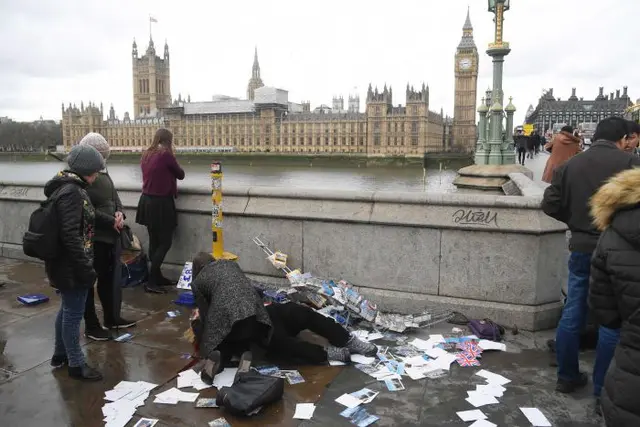By APD writer Wang Peng
As BBC reports, seven people have been killed and at least 48 injured in a terror incident in London in which three male attackers were shot dead by police.
At that time, a white van hit pedestrians on London Bridge at about 22:00 BST on Saturday, then three men got out and stabbed people in nearby Borough Market. These three men were wearing fake bomb vests, the police said, and one of those injured is a police officer who was stabbed after came to help. His injuries are not life-threatening. Political parties have suspended the national general election campaigning and the prime minister is chairing a meeting of the government's Cobra emergency committee.
Although these terrorist attacks occur in Britain that is far away from China, the Chinese government and people have ample reasons to seriously concern the security crisis and make preparations in advance in an era of globalized terrorist network.
A series of issues are worth considering: why do terrorist attacks happen so frequently and increasingly devastatingly (in western countries) over the past few years? What kind of mechanism does encourage the terrorists to launch attacks again and again and often acquire the success?
The current surveys conducted by anti-terrorism experts show that the behaviour mode and spirit of terror/terrorism is not new. People can trace its origins back to Maximilien de Robespierre and the Jacobins Party’s “rule by terror” during the French Revolution in late 18th century. However, two vital technical progress in modern times strengthened the power of terror: the one is the tremendous progress of individual weapons and the minimization of explosive devices, the other is the global polarization of mass media and the newly rising social media, such as Facebook, Twitter, and so forth.
The former advantage endorses the terrorist tremendous antipersonnel force especially in killing unarmed civilians in the urban population centres while the latter helps spread of fear and horror at an unprecedented speed globally and hence infects billions of people, as well as their governments. In essence, the spread of people’s fear is more important than the attack itself, which distinguishes “terrorist attack” from the ordinary criminal cases.
In this vein, we must rethink the practical effect of (western) media in terrorist attacks broadcasting, as well as the big picture of global anti-terrorism war. In doing so, we may find a vital dilemma between the journalistic professionalism and actual and pragmatic demand of anti-terrorism war. To be professional, the journalists must make every effort to get close to the truth and then reveal the truth to the public.
However, in this process these pieces of news may become the poison of anti-terrorism officers, hostages and victims. The most typical case to illustrate this point is the Munich Olympics Massacre 1972. When the German police were trying to rescue the eleven Israeli Olympic team members as hostages from the Palestinian terrorist group Black September, the international media made live broadcast to the whole world, even including the TVs in the rooms that occupied by terrorists. So the attackers knew the plan of the police in details and made proper preparations in advance. This tragedy was caused by many elements, but the unprofessional performance of the “professionalism” of the international media must take a large portion of responsibilities.
Let us take the Manchester Massacre two weeks ago for another example. After the crisis, numerous live broadcast with details and consequent follow-up stories are flooded in the mainstream western media and the popular social media, including but not limited to the personal information of the attacker and the victims, the memory and comments from neighbours and friends, the reactions and painfully sad from the relatives of the victims, as well as the public anger and official severe reprimand from all parts of the world.
However, are all these things the terrorists really want? Are all the blames, condemnations, and curses regarded as the highest praise and honour in the terrorist and potential terrorists’ minds? Admittedly, the returning visits to the survivors and victims’ relatives may be a good way of giving our expression to the dead’s grieves, but will showing people’s sadness (online) mean confirming the “contribution” and “success” of the attacks and encouraging new terrorists and make bigger sensational news?
Although all the words above are just logical deduction by reasoning and we are completely sure the absence of malice from the (mainstream western) media subjectively, the object influence and unexpected results they made may put sand in the wheels of international anti-terrorism war. This is a key point that all journalists and social media reporters have to face and bear in their minds.
Dr. Wang Peng, Research Fellow at Charhar Institute, Lecturer at the China Institute of Fudan University.
(ASIA PACIFIC DAILY)
 简体中文
简体中文

